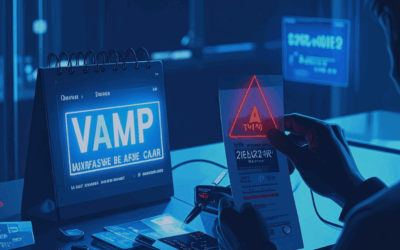Chargebacks pose a rising challenge for the constantly evolving airline and travel industry, having the potential to severely disrupt operations and reduce profit margins of companies. Chargeback disputes have increased in frequency and complexity as the world economy grows more interconnected and digital transactions become the norm. Every industry stakeholder is negatively affected by these trends, from major multinational airlines to tiny travel companies. This article explores the complexities of chargebacks in the airline and travel industry, detailing the causes, impacts and effective mitigation techniques to tackle this issue.
Understanding Chargebacks in the Airline & Travel Industry
Chargebacks were designed to provide customers with a level of protection by allowing them to dispute transactions and receive refunds from the banks that issued their debit or credit cards for reasons where the merchant was in the wrong. In the airline and travel sector, these disputes generally arise from problems with the quality of the services, including delays, cancellations or poor service. The misuse of this system, sometimes known as “friendly fraud” or chargeback abuse, is becoming more common. This term refers to circumstances in which customers fraudulently claim that a transaction wasn’t authorized or that the services were not provided in accordance with the description, even when they were. Friendly fraud is on the rise, which is especially problematic for airline and travel companies because it causes significant financial losses and takes resources away from genuine customer service needs. All operators in the airline and travel industry must understand the complex processes involved in filing, processing and resolving chargebacks. This entails not just understanding the typical causes of conflict but the automated solutions that are available in the market to prevent and resolve chargebacks.
Root Causes and Impacts on the Airline & Travel Industry
In airline and travel industry, chargebacks have a variety of underlying causes. As mentioned, chargebacks undertaken by customers can often be the result of service dissatisfaction, as travelers believe that the service they were promised was not provided. Unintentional charges resulting from technological errors, like billing system problems, can also cause disputes. In more recent times, fraudulent chargebacks have been utilized to exploit transaction methods.Procedures that were in fact created to help combat the increasing amount of cybercrime in the past decade have themselves become a vector of attack.
In addition to the immediate financial losses resulting from refunded payments, these situations also result in extra expenses due to fees charged by banks and credit card providers as well as the running costs related to resolving disputes. The management of these issues comes with a significant administrative cost. Airlines and travel companies have to invest a lot of money in checking claims and communicating with banks, which frequently involves lengthy settlement procedures. The administrative burden and the direct and indirect expenses associated with chargebacks can have a negative effect on a business’s profitability. Excessive chargebacks can also harm a business’s reputation in addition to causing financial losses by weakening client loyalty and trust. Reputational damage can be especially damaging to a business in the extremely competitive travel industry, where client confidence is important and may impact customer retention and attracting new business.
Challenges Faced by Airline & Travel Companies
When handling chargebacks, airlines and travel agencies face a variety of difficult challenges. With many companies situated in multiple locations of the world, rules and regulations vary, particularly when it comes to international transactions. There is also a greater chance of inconsistencies and miscommunications due to the large number of transactions and the complex structure of travel bookings, which sometimes include multiple stakeholders and services. This strengthens the fact that disputes can be easily encouraged by the industry’s fast-paced environment and frequent last-minute changes, which worsens the situation.
Strategies for Mitigation and Best Practices
Airline and travel companies must take an expansive strategy that involves increasing transaction transparency, boosting customer communication and making use of cutting-edge fraud detection technologies in order to effectively prevent fraudulent chargebacks. It is essential to make sure that all terms and conditions, especially those relating to changes and cancellations, are made obvious to customers and are easily accessible. In addition to increasing trust, this transparency helps to avoid misunderstandings that might result in disputes.
When it comes to spotting and preventing potentially fraudulent transactions before they lead to chargebacks, sophisticated fraud detection and prevention solutions are essential. By having tools like this in place, companies can be made aware of questionable activity and take preventative action.
Another key strategy is to train support staff to resolve conflicts empathetically and effectively. Timely resolution of complaints and difficulties by well-trained staff can discourage customers from pursuing a chargeback. The emphasis of this training should be on understanding consumer problems and providing appropriate solutions that adhere to corporate standards.
Managing client expectations and happiness involves proactive engagement with customers, such as providing fast notifications about changes or possible problems. Delays in resolving disputes can also be avoided by swiftly offering alternatives or fair compensation.
Developing strong partnerships with payment processors and banks will also enhance the effectiveness of the dispute resolution process. These relationships can provide valuable insights into the patterns of disputes and facilitate faster resolution of chargebacks.
PayShield Can Help
PayShield is committed to helping the airline and travel industry overcome the obstacles of disputes, chargebacks and fraud. Through collaboration with industry leaders like Ethoca and Verifi, we provide robust Chargeback Alert services and advanced fraud prevention solutions, such as 3D Secure, which add critical layers of security at the transaction point.
Airlines and travel companies can prevent chargebacks by using our chargeback alert system to receive notifications about incoming disputes and take appropriate action before they are escalated into official chargebacks. Additionally, Dispute Intelligence can help clients automate seller-directed alerts, ensuring those transactions can be auto-refunded based on merchant set rules. By swiftly solving these issues, this proactive strategy not only protects resources but also supports the preservation of relationships with customers.
Furthermore, PayShield’s 3D Secure product improves transaction security by adding an additional verification step that authenticates transactions in real-time and lowers fraudulent activity. In order to increase consumer trust and lower chargebacks resulting from suspected fraud, this technology is essential.
For airlines and travel companies that are looking to minimize their customer and transaction disputes, reduce chargebacks and increase revenue, PayShield offers automated solutions that meet the unique needs of this industry. To understand more about how PayShield can assist your business in reducing chargebacks and protecting your revenue, please reach out via our contact form.









